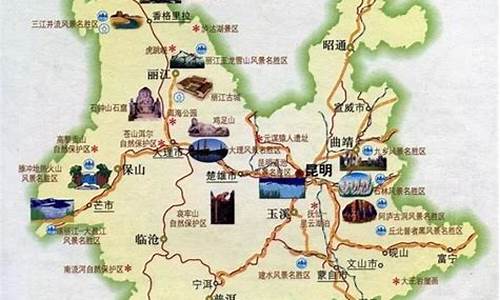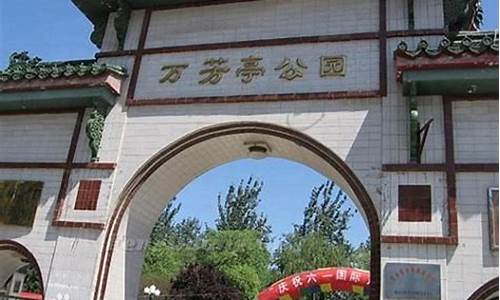水上公园英语-水上公园英语怎么说
1.定西旅游景点介绍英文版 关于介绍定西的英语作文
2.帮忙翻译一下这些英语文章
3.八年级下英语unit6-10复习题纲
4.英语短文:随着端午节的到来,刘洋打算邀请李杰和其他一些朋友明天上午九点在公司门口集合,在水上公园
5.八年级上册英语第九,十单元重点句子
定西旅游景点介绍英文版 关于介绍定西的英语作文

英语介绍景点简单
英文介绍旅游景点:长城
China's Great Wall is the greatest building project in human history of civilization.
中国的长城是人类文明史中最伟大的建筑工程。
It was built in Spring and Autumn period ,Warring states times, two thousand years _go.
长城建造于两千年前的春秋战国时代。
After the Qin state unified China. The chinese people connected the Great wall of various states.
秦国统一中国后,中国人把各个战国的长城连接起来。
Two generations of wise people have constructed The Great Wall intensively. _ast its project. It looks like rainbow rolling forward. It was possible to be called _orld miracle.
聪明的两代人曾经密集地建造长城,扩展了它的工程. 它看起来象彩虹,滚滚向前. 它有可能被称作世界奇迹。
It is the must for chinese people. When you repair Great Wall's _uins in offical _ays.
You will not only could witness Great Wall's apparance that meandered in the hills and high moutains , but could also understand the chinese nation creation history , _reat wisdom and courage of chinese people. In December 1987, Great Wall was included in ‘’World heritage Name list‘’.
它是中国必须付出的代价,当你在正式的场合下,在废墟中修建长城,你不仅会见证它在高山和峻岭中婉延曲折的情景, 也会了解中华民族的创造历史以及中国人的勇气和智慧,在1987年12月,长城被归录在‘’世界遗产名录"中。
介绍景点的高中英语作文
身未动,心已远。下面,是我为你整理的介绍景点的 高中 英语 作文 ,希望对你有帮助!
介绍景点的高中英语作文篇1
Dear Nick,
Ilsquo;m glad to hear that youlsquo;re coming to Sichuan in August. Sichuan Province lies in southwest of China which is a good place for people to enjoy many world-famous places of interest, such as Jiuzhaigou and Dujiangyan Irrigation Project. Jiuzhaigou is well known for its beautiful lakes, of which the water is clear and looks colorful. Another attraction is Dujianyan Irrigation Project, which was built over 2,000 years ago and is still playing an important part in irrigation today. Besides, the nice weather and convenient transportation here can make your trip more enjoyable. In my opinion, it is a wise choice to travel here.
I'm looking forward to your coming.
Yours sincerely,
Li Hua
介绍景点的高中英语作文篇2
Dear Sam,
I'm very glad to hear that you'll travel to China next month. Now I'll tell you something about the greatest places of interest in out country.
First, Beijing is the capital city of China. There are so many amazing places you cannot miss. For example, the Ten-thousand-li Great Wall--one of the seven wonders in the world; the Palace Museum--the Imperial Palace of the Qing Dynasty; Yuanmingyuan -- a world--famous imperial garden.
Second, you'd better go to Xi'an of Shanxi province for the Terra Cotta Warriors lies there. And you may also go to Huashan -- a dangerously steep mountain. It's not far from Xi'an
At last I hope you'll pay a visit to Hunan .Hunana is famous for Zhangjiajie, a place with beautiful mountains and rivers .By the way, have you ever heard of __? He wa one of the greatest leaders in Chinese history. And if you come to Shaoshan -- his home town, you'll know more about him.
Oh,I must stop now, I have to get ready for my final exams
Good luck!
Yours
Ahfang
介绍景点的高中英语作文篇3
Beijingis our capital city which is famous for its long history. Now we have a one-daytour plan for you.
北京是我们的首都,以悠久的历史而闻名,现在我们为你制定了一天的旅游计划。
Inthe morning, you can start the day at the Great Wall. It's one of the greatestwonders in the world. It's so magnificent that you can't go to Beijing withoutvisiting the Great Wall. At noon, you can go to the Summer Palace. There are somany interesting sites, such as Wanshou Mountain, Kunming Lake, Suzhou Street,and some other ancient palaces. So you can climb Wanshou Mountain first. Theview on the top is so wonderful. Next, you can go boating on Kunming Lake, andthen, walk on Suzhou Street to enjoy the life of regions south of theYangtze River. In the afternoon, you can go to have a long walk on TiananmanSquare, in order to see the city well, and then you can visit the PalaceMuseum. There you can see different objects of different periods. They are ofgreat value. In the evening, the Front Gate Walking Street is a good place togo where you can buy various kinds of souvenirs and clothes. Most buildingsthere have the traditional Chinese styles. Maybe you can know some history ofancient Beijing.
早晨你可以从长城开始新的一天,它是世界上最伟大的奇观之一。太壮观了,壮观到去北京不能不去参观长城。中午,你可以去颐和园。有那么多名胜古迹,如万寿山,昆明湖,苏州街,以及其他的一些古老宫殿。你可以先爬万寿山。山顶的景色是很美丽的。之后你可以去昆明湖划船,然后,走在苏州街来享受长江以南地区的生活。下午,你可以去天安门广场上散步,为了更好的看清楚这个城市,接下来你可以参观故宫博物馆。在那里你可以看到不同时期不同的物体。他们是很有价值的。晚上,前门步行街是一个很好的地方,在那里可以买到各种纪念品和衣服。那里的大多数建筑物都是中国传统风格。也许你可以了解到一些古老的北京城的历史。
Wishyou a nice trip.
祝你旅途愉快
看了“介绍景点的高中英语作文”的人还看了:
1. 旅游景点英文介绍
2. 关于旅游的高一英语作文带翻译
3. 有关旅游景点介绍的英语作文
4. 出国旅游的高中英语作文
5. 关于风景的英语作文
甘肃旅游景点的英文翻译
我在兰州生活近20年,兰州是全国唯一一座黄河穿城而过的城市。市政府修建了四十里黄河风情线,被喻为兰州的小外滩。兰州市区内有五泉山、白塔山、水车园等著名景点。
四川各大旅游景点的英文名字,全面一点,多一点
四川各大旅游景点的英文名字是:
1、龙潭溶洞(Longtan cave):
龙潭溶洞位于攀枝花米易县白马镇,距攀枝花104千米,距米易县城26千米,位于龙肘山下、安宁河滨,是省级风景名胜区、国家AA级旅游区。
2、九寨沟(Jiuzhaigou Valley Scenic and Historic Interest Area):
九寨沟位于四川省西北部岷山山脉南段的阿坝藏族羌族自治州九寨沟县漳扎镇境内,地处岷山南段弓杆岭的东北侧。距离成都市400多千米,系长江水系嘉陵江上游白水江源头的一条大支沟。
3、剑门关(Jianmen Pass Beauty Spot):
剑门关风景区是国家AAAAA级旅游景区,国家级风景名胜区,全国重点文物保护单位,国家森林公园,国家自然与文化双遗产,全国100个红色经典旅游景区之一。中国知名旅游目的地,国家文化产业示范基地,全国爱国主义教育基地,四川省自然保护区,四川省地质公园。
4、乐山大佛(Leshan Giant Buddha):
乐山大佛,又名凌云大佛,位于四川省乐山市南岷江东岸凌云寺侧,濒大渡河、青衣江和岷江三江汇流处。大佛为弥勒佛坐像,通高71米,是中国最大的一尊摩崖石刻造像。
5、峨眉山(Mount Emei):
峨眉山位于北纬30°附近,四川省西南部,四川盆地的西南边缘,是中国“四大佛教名山”之一,地势陡峭,风景秀丽,素有“峨眉天下秀”之称,山上的万佛顶最高,海拔3099米,高出峨眉平原2700多米。
用英语介绍我的家乡临洮县的景点和特产
临洮,古称狄道,兰州南大门,自古为西北名邑、陇右重镇、古丝绸之路要道,是黄河上游古文化发祥地之一,有“彩陶之乡”、“兰州的卫星城“、”兰州的后花园”的称号。 Lintao, ancient Didao, the South Gate of Lanzhou, since ancient times for the northwest of Longyou City, town, the ancient silk road routes, the upper reaches of the Yellow River is one of the ancient cultural birthplace, "colored town", "Lanzhou satellite city", "Lanzhou garden" title. 临洮县,隶属于甘肃省定西市,地处东经103°29'至104°19',北纬35°03'42''至35°56'46''之间,陇西盆地西缘,青藏高原东边,甘肃中部、定西市西部。东临安定区,北接兰州市,南连渭源县,西与临夏回族自治州东乡族自治县、广河、康乐县接壤。临洮县总面积2851平方公里,辖12个镇、6个乡,54.54万人 Lintao County, Gansu Province, belonging to the city of Dingxi, located in the east longitude 103 DEG 29'to 104 DEG 19', between latitude 35 DEG 03'42''to 35 DEG 56'46'', the western margin of the Longxi basin, Qinghai Tibet Plateau East, central Gansu, Western Dingxi. East Anding District, Lanzhou city of North, south of Weiyuan County, bordering the West and Linxia Hui Autonomous Prefecture, Dongxiang Autonomous County, Kangle County, guanghe. Lintao county with a total area of 2851 square kilometers, jurisdiction over 12 towns, 6 townships, 545 thousand and 400 people 临洮县获得了“全国田径之乡”、“中国花木之乡”、“中国民间艺术之乡”等称号。 Lintao County won the "national athletics village", "China Huamuzhixiang", "Chinese folk art village" title. 地方风俗 a local custom 民间绘画 Folk painting 临洮民间绘画以油漆家具最为驰名,民间家用木器箱、柜、桌等,都画着描金装饰画,以传统戏、花卉、二十四孝等为内容,由民间工匠绘制。临洮乡间盛行画棺木,画师以松、鹤、鹿、百寿图、前蟒后鹤、二十四孝、八仙等为内容,按者身份绘画。 Lintao folk painting to paint the most famous folk furniture, household wood box, cabinet, table, painted with gold decorative painting, traditional opera, flowers, filial piety and other content, drawn by the folk craftsmen. Lintao country popular painting painter to the coffin, pine, crane, deer, Baishou map, crane, Ershisixiao, former Python after eight to the content of painting, according to the identity of the deceased. 刺绣剪纸 Embroidery and paper cutting 一些民间女艺人,精于花样刺绣与剪纸。在窗户、枕头、鞋面、肚兜上剪上或绣上花、草、鱼、虫、猫、兔、蝙蝠等动植物图案,以独特的风格、浓郁的乡土气息受人青睐,盛行不衰。 Some folk artist, skilled in embroidery pattern and paper-cut. In the window, a pillow, a vamp, stomachers cut or embroidered with flowers, grass, insects, fish, rabbits, cats, bats and other animal and plant pattern, with unique style, rich local flavor popular, popular. 砖雕木雕 Brick carving 许多民间工匠擅长砖雕、木雕,俗称“花雕”、“花板子”,题材多为梅、兰、菊、竹、孔雀牡丹、喜鹊登梅等,用于建筑物和棺木的装饰。寺庙建筑雕梁画栋,木雕砖雕极为盛行。有些能工巧匠长于制作戏剧头盔、头饰、玩具、彩灯、刻葫芦、印章等。 Many folk craftsmen at brick and wood, commonly known as "flower", "flower board", the theme are plum, orchid, bamboo, chrysanthemum, peony, peacock magpie Mui, and coffin decoration for buildings. Temple building a richly ornamented building, wood carving is extremely popular brick. Some skilled craftsmen made longer than drama helmets, ornaments, toys, lamps, carved gourds, seal etc.. 民间戏曲 folk operas 临洮民间戏曲演唱较为盛行。每逢节日,城乡群众有搭台唱戏的习惯,剧种有秦腔、眉户、小曲等,尤以秦腔更为普及。 Lintao folk opera singing is more popular. During the festival, urban and rural masses have dataichangxi habits, Shaanxi opera, opera, etc. especially in small Mihu, Shaanxi is more popular. 民间音乐 folk music 临洮民间音乐主要以民歌、民间乐曲、花儿、丧事音乐、劳动号子等形式流行于人民群众中。民歌主要有小曲、小调、秧歌、酒曲等。 Lintao folk music, folk music, folk songs to flowers, funeral music, work songs and other forms of popular in the masses of people. There are folk songs, minor, yangko dance, yeast etc.. 民间舞蹈 Folk dance 临洮县民间舞蹈多数是集体舞蹈,随从社火表演,有龙灯舞、狮舞、旱船舞、太平鼓、高明灯等,用的道具有扇、花等,以锣、鼓击拍伴奏,动作粗犷,场面复杂多变,阵势浩大,气氛热烈,在东乡大石头、南乡南屏一带流行。 Most of the folk dance in Lintao county is a collective dance, after dragon dance, folk art performances, lion dance, dance, drum, Hanchuan high light, props for fans, flowers, Gong, drum beat accompaniment, action rough, complex scenes, the battle is vast, warm atmosphere, popular in Dongxiang, big stone Nan Xiang Nanping area. 旅游景点 Scenic spot 老子文化园,水泉山庄,战国秦长城遗址,佛归寺生态旅游园,西湖水上公园,临洮县博物馆, Lao Tzu Cultural Park, Fountain Hills, Warring States Qin the Great Wall ruins, Buddha Temple to ecological tourism park, West Lake water park, Lintao County museum,
帮忙翻译一下这些英语文章
1。在一个凉爽的秋日,适合在外面玩耍。一个炎热的夏天则是去个水上公园很好的时间去一个水上公园。有时在凉爽的冬季,您可以享受滑冰或打雪仗。但你不会知道会是什么样的日子,直到你确定它的温度。
有很多方法来测量温度。我会告诉你其中的一些有趣的方式。有些人说,蟋蟀是一个很好的温度计。在晚上,蟋蟀唱歌时,数一数有多少次蟋蟀在14秒中唱。这个数字应该告诉你的温度。
有些人还认为,毛毛虫可以告诉我们今年即将到来的冬天的温度。如果身体上的褐色条纹,比黑色的更广泛,它意味着一个漫长而寒冷的冬天将来临。很多人看这一点。在美国,有些人相信,如果在地面上看到它的影子,将有6个星期的冬季。
2。发送和阅读电子邮件已经迅速成为世界上最常见的日常活动之一,无论是出差还是游玩。现在,越来越多的教师和学生都使用以这种形式的交流,以提高他们的语言技能,特别是英语。
在过去,老师在他们的学生与其他国家的信件中经常组织笔友项目交流会。然而,用于发送和接收(繁体信件,然后采取后续行动答复的周转时间)需要太多的时间。此外,学生必须支付钱币发送信件,一些学生可能是不愿意做的。用电子邮件,但是,邮件可以发送了一个在学校,家庭,网吧或按钮。而不是等待天外径为1 星期,学生可以在几天内得到答复,几小时甚至几分钟。
电子邮件已经广泛适用于很多在教室里的提供语言学习者和教师在教室里
八年级下英语unit6-10复习题纲
Unit 6
Useful Expression
1. how long 多长时间了?
2. start class/skating/to skate 开始上课/滑冰
= begin class/skating/to skate
3. a skating marathon 一场滑冰马拉松
4. would like = ’d like 愿意、想要
5. run out of 跑完
6. by the way 顺便问一下
7. more than = over 超过
8. ever since 自从
9. raise money for charity 筹集善款
10. a pair of 一双
11. five and a half years 五年半
12. the whole five hours 整整五个小时
13. in Russian style 以俄罗斯的风格
Key sentences
1. Every hour they skate, each student raises ten yuan for charity.每位学生每溜冰一个小时就能为慈善事业筹到10元钱。
every 和each 都表示“每一个”,但every是指整体,each是指每个个体。
2. Next is Sam. 紧接着的是Sam。
3. Because we’ve run out of room to store them. 因为我们已经没地方存放他们了。
4. By the way, what’s your hobby? 顺便问一下,你有什么爱好?
5. I am interested in the job as a writer. 我对这份作家的工作感兴趣。
6. In fact, the first Jews probably came to Kaifeng more than a thousand years ago.事实上,首批犹太人可能是在一千多年前来到开封的。
7. The more I learn about Chinese history, the more I enjoy living in China. 我对中国历史了解的越多,我就越喜欢在中国生活。
8. Although I live quite far from Beijing, …. 虽然我住得离北京很远。
Grammar
1. 现在完成进行时
(1) 结构:have/has + been + V.ing.
(2) 用法:表示从过去某一时刻开始,一直延续到现在且很有可能持续下去;
I’ve been doing the cleaning all this morning.
表示从过去开始一直持续到现在的某一动作刚刚结束;
You’re late again! I’ve been waiting here for an hour.
表示一个一直到说话时为止的一段时间内一再重复的动作。
I have been calling you several times in two days.
(3) 时间状语:all the time/this morning, since morning, all night,
this week/month, recently 等
(3) 对现在完成进行时的时间状语进行提问时使用how long。
How long have you been skating?
I’ve been skating since I was seven years old.
for 5 years old.
2. 现在完成进行时与现在完成时区别:
现在完成进行时侧重于动作的持续、运行;而现在完成时强调动作的完成。如:
I have written a letter to my father.(到现在信已写完)我给我的父亲写了一封信。
I have been writing a letter to my father.(一直在写,现在还在写)我一直在给我的父亲写信。
再看:I wrote a letter to my father. 我给我的父亲写过一封信。
Unit 7
Useful Expression
1. turn down/up 调小/大(音量)
turn on/off 打开/关上(电源开关)
2. not at all 一点也不
3. right away = in a minute 立刻、马上
4. do/wash the dish 洗碗
5. get out of 出来
6. put on 穿上(动作)
wear 穿着(状态)
7. feed the dog 喂狗
keep the dog 养狗
8. return … to … 把…还给…
9. help sb. do/with sth. 帮助某人做某事
10. make posters 制作海报
11. a terrible haircut 一个糟糕的发型
12. have a long telephone conversation 褒电话粥
13. wait in line 排队
cut in line 插队
14. follow sb. around 跟在某人周围
15. get mad = get annoy = get angry 感到恼火
16. all the time 一直
17. complain about 抱怨…
18. be polite 有礼貌
19. try (not) to do sth. 尽力(不去)做某事
20. must be 一定是
21. keep down 保持音量
22. seem like 看上去像…
23. be allowed 被允许
24. even if/though 尽管、即使
25. take care = be careful 小心
26. in public places 在公众场合
in public 公开地,当众地
27. put out 熄灭
28. drop litter 乱丢垃圾
29. pick up 捡起、拾起
Key sentences
1. Would you mind turning down the music? 你介不介意把音乐声关小呢?
Would you mind (not) doing sth.? 你介不介意做(不做)…?
= Would/Could you please (not) do sth.? 请你做(不做)…好吗?
2. I won’t be long. 我一会就好。
3. The pen you bought didn’t work. 你买的那把笔坏了。
= The pen you bought wasn’t broken.
= There was something wrong with the pen you bought.
= Something was wrong with the pen you bought.
4. Here you are. 给你。
Here’s what they said. 以下是他们所说的。
5. I can’t stand it. 我无法忍受。
I can’t stand to see good food to waste. 我无法忍受看着好食物被浪费。
6. Could you please not follow me around? 请你不要跟着我四周好吗?
7. This happens to me all the time in the school library.
在学校图书馆我一直碰上这种事。
9. Would you mind keeping your voice down? 你介不介意把音量放小呢?
voice: 名词,指说话和唱歌地嗓音; talk in a loud voice 高声交谈
noise: 名词,指人们不愿听到地噪音;
sound: 名词,泛指自然界一切可以听到的声音。
10. For example, dropping litter is almost never allowed.
例如,乱丢垃圾是不被允许的。
be allowed 被允许。 “be + 动词的过去分词”是被动语态
Unit 8
Useful Expression
1. get her a scarf 送她一条围巾
2. compare with/to sth. …与…相比
3. not creative enough 不够有创意
4. easy/difficult to take care of 容易/难养活
5. these days 目前,现在
6. pot-bellied pig 大肚猪
7. spend with her 和她呆在一起
8. not … at all 根本不
9. fall asleep 入睡(动作)
be asleep 入睡(状态)
10. half way = halfway 半道、中途
11. different kinds of 不同种类
12. pay for 付款
13. from across China = from all over China 来自全中国
14. as … as 与…一样…
not as/so…as… 与…比不如其…
15. encourage sb. to do sth. 鼓励某人做某事
16. hear of 听说
17. make progress 取得进步
18. be able to = can 能够
19. have fun with sth. 做…有乐趣
Key sentences
1. Why don’t you get her a scarf? 为什么不给她买条围巾呢?
get sb. sth. for … 为了… 给某人买某物
= get sth. to sb. for…
注意:当sth. 是代词时,不可使用第二种用法。
2. That’s not interesting enough. 那不够有趣。
enough有两种词性:当它用来修饰形容词、副词时,作为副词,应放在所修饰的词之后,如上句;当它用来修饰名词时,应放在名词之后,如:I don’t have enough time to spend with her.
3. What’s the best gift (that) Joe has ever received? Joe曾经受到的最好的礼物
是什么?
4. What a lucky guy! 幸运的家伙!
5. I think a dog is a good pet for a 6-year-old child. 我认为对于一个六岁的孩子一条狗会是一个好礼物。
6. Dogs are too difficult to take care of. 狗很难照料。
7. The trendiest kind of pet these days is the pot-bellied pig. 近来最流行的宠物是大腹便便的猪。
8. Life with a pig isn’t always perfect. 和一只猪在一起生活并不总是完美的。
9. Now she’s too big to sleep in the house. 现在她太大了不能睡在屋子里。
too… to …:太…以致于不能…
= so… that 主语 can’t ….
e.g. He is too young to go to school.
= He is so young that he can’t go to school.
= He isn’t old enough to go to school.
= He is very young and he can’t go to school.
注意:too…to…是一个简单句,而so…that…是一个复合句。并且当复合句中的主句主语和从句主语不同时,在句型中要用for sb.来表述。如:
The digital camera is so expensive that we can’t buy it.
= The digital camera is too expensive for us to buy.
= The digital camera isn’t cheap enough for us to buy.
= The digital camera is very expensive and we can’t buy it.
10. My shoes were really cheap. They only cost $5. 我的鞋子真的很便宜。只要花5美圆。
cost:花费(金钱)主语为物;
pay:花费(金钱)主语为人;
take::花费(时间、金钱)主语为物;
spend :花费(时间、金钱)主语为人。
Grammar
1. Why don’t you get her a scarf?
= Why not get her a scarf? 为什么不给她买条围巾呢?
How/What about doing sth.? 做…怎么样呢?
How/What about + (a/an) + n.? …怎么样呢?
2. Would you mind (not) doing sth.? 你介不介意做(不做)…?
= Would/Could you please (not) do sth.? 请你做(不做)…好吗?
注意:7、8两个单元学习的几种礼貌的提出建议的方式要重点、综合复习。注意他们的搭配。
Unit 9
Useful Expression
1. hear of 听说
hear from 收到…的消息/来信
2. take a ride 兜风
3. end up 结束
4. argue with sb. 与某人争吵
5. roller coaster 过山车
6. a flight attendant 一个机组乘务员
7. in fact 事实上
8. all over the world 全世界
9. think about 考虑
think of 想起;认为
10. rather than 宁可;而不是
11. neither…nor… 既不…也不…
12. three quarters of 四分之三
13. for example 举个例子
14. such as 例如
15. on the one hand,… on the other hand,…. 一方面…,另一方面…
16. be asleep 睡着(状态)
fall asleep 睡着(动作)
Key sentences
1. Have you ever been to a water park? 你曾经去过水上公园吗?
No, I haven’t. 不,我没有。
Me neither. = Neither/Nor have I. 我也没有。
这是一个否定的省略句。它的结构是“ Neither/Nor + be动词/助动词/情态动词+主语”。而用在肯定的省略句中时要使用so,它的结构是“So+ be动词/助动词/情态动词”。如:
-- I paid 20 yuan for this book.
-- So did I.
2. The roller coaster is themed with Disney characters.
过山车是以迪斯尼的人物为主题的。
3. The boats take different routes, but they all end up in the same place.
虽然船的路线不同,但它们都停泊在同一个地方。
4. It’s just so much fun in Disneyland.
迪斯尼乐园里有如此之多的乐趣。
5. It was because I could speak English that I got the job.
只是因为我能说英语,我得到了这份工作。
6. More than three quarters of the population are Chinese.
超过四分之三的人是中国人。
7. This is because the island is so close to the equator. So you can choose to go whenever you like. 就因为这个岛是如此接近赤道。所以只要你愿意你任何时候都可以去。
Grammar
1. 现在完成时
(1) 用法:动作到现在已经完成或刚刚完成;
过去发生或已完成的动作对现在造成的结果和影响;
过去开始一直持续到现在的动作或状态。
(2) 基本结构:have/has + V.过去分词
(3) 时间状语:already, yet, just, ever, never, once, twice, so far, ever since, for a long time, for + 一段时间, since + 过去的时间点/过去时的从句,等。
(4) 注意事项:
A. 现在完成时是现在的时态,重点表达目前的结果和状态;
B. 表示动作从过去开始持续到现在用for + 时间段, since +点时间连用。对for与since短语提问用how long。
C. 现在完成时从不与when引起的疑问句联用。
D. have been to:去过…
have gone to:去了…
have been in:呆在…
E. 短暂性动词变为延续性动词:
buy --- have had borrow --- have kept
join --- have been in / have been a member of
become --- have been a member make friends --- have been friends
die --- have been dead get to know --- have known
come/go to do --- have done catch a cold --- have had a cold
begin/start to do --- have done
begin / start --- have been on
enter / come / arrive / get to / reach --- have been in/at
go / leave for / set off / set out --- have been away from
2. since,for在现在完成(进行)时中的用法差异
(1) since 后接过去的时间点或一般过去时的从句。
He has been an English teacher since three years ago.
We have known each other since we came to study in this university.
(2) for后接时间段
He has lived here for three years.
3. 现在完成时与一般过去时的区别
现在完成时表示过去发生的某一动作对现在造成的影响和结果,强调的是现在的情况,所以它不能和表示过去的时间状语连用,如:yesterday, last night, three weeks ago, in 1990等。
而一般过去时只表示过去的动作或状态,和现在不发生关系,它可以和表示过去的时间状语连用。如:
He has lived here since 1992. 1992年以来他一直住在这里。(他现在还住在这里)
He lived here in 1992. 1992年他住在这里。(并不涉及他现在是否住在这里)
Unit 10
Useful Expression
1. forget to do sth. 忘记去做某事
forget doing sth. 忘记做过某事
2. look through 浏览
3. cross a busy street = go/walk across a busy street 穿过一条繁忙的街道
4. think of 想起、认为
5. come along 出现,发生
6. get along/on … with sb. 与某人相处的…
7. be friendly to sb. 对某人友好
8. have a birthday party 举办一个生日聚会
9. on Saturday night 在周六的晚上
10. at least 至少
11. at the school dining room 在学校的餐厅里
Key sentences
1. I hope so. 我希望如此。
so为代词,用来表示赞同前面所提及的内容。除了hope以外,还有think,believe,suppose,be afraid等,可与so连用。如:
Do you think it will rain this afternoon? 你认为下午会下雨吗?
I think/believe/suppose/hope/am afraid so. 我想/相信/猜/希望/恐怕会。
注意:用来表示不赞同前面所提及的内容,有两种不同的方法,不可混用。如:
I don’t think so. 我不这么想。
I hope/suppose/am afraid not. 我希望/猜/恐怕不会这样。
2. How much did that shirt cost? 那件衬衫多少钱?
3. I feel like part of the group now. 现在我感觉像是他们中的一员了。
4. Friends like you make it a lot easier to get along in a new place. 有像你这样的一些朋友,使得我在新的地方很快就适应了。
Grammar
反意疑问句
英语短文:随着端午节的到来,刘洋打算邀请李杰和其他一些朋友明天上午九点在公司门口集合,在水上公园
留言:Hello, Li Jie,with the arrival of the Dragon Boat Festival。
?Liu Yang plans to invite Li Jie and some other friends to meet at the gate of the company at 9 am。
tomorrow and at the water park。 -Written by Liu Yang。
你好,李杰,随着端午节的到来,刘洋我计划邀请李杰你和其他一些朋友明天上午9点在公司门口和水上公园见面。—笔者:刘洋
英语写作各式的正式和非正式区别:含义不同,应用不同。
一、含义不同:
正式文体常使用正式用语,非正式文体则常使用非正式用语,这两类不同的用语是在长期的使用过程中被约定俗成地固定下来的。英语写作中一般用正式用语。
二、应用不同:
正式英语主要应用于写作中。这种文体格式通常带有学术性的写作口吻,通常见于学术课本,大学论文,商业信函和合同中。
当正式用语应用于写作中时,句子通常较长,较为复杂,也应严格遵循语法规则。正式写作中,通常较为客观,经常使用it这样的非人称代词和动词的被动形式。
八年级上册英语第九,十单元重点句子
Unit 9
1. Deng Yaping is a great Chinese ping—pong player.邓亚萍是中国的一位乒乓球巨星。
2. She was born in 1973.她出生于1973年。
3. You are never too young to start doing things. 你多早开始做事都不为过。
4. For example,Tiger Woods started golfing when he was only ten months old. 例如,泰德?伍兹十个月大时就开始打高尔夫球。
5. Ronaldo, the great Brazilian player, played for his national team when he was seventeen. 巴西足球巨星罗纳尔多17岁就为国家队效力。
6. When did she become a movie star? 她何时成了一名影星?
7. He spends all his free time with his grandson.他全部的空闲时间都是跟他的孙子在一起。
8. She become a skating champion when she was ten. 在她十岁时,她成了一位滑冰冠军。
9. He was also the first Chinese pianist in the 70-year history of the competition to win this prize. 在有七十年历史的(肖邦国际钢琴)比赛中,他也是第一位获此殊荣的中国钢琴家。
10. He stopped playing because of his sore back. 因为背疼,结束了他的足球生涯。
11. She became the number one women’s singles player in the ITTF from 1993 to 1998. 1993年至1998年,她成为了国际乒乓球联合会女子单打的头号种子选手。
Unit 10
1. What are you going to be when you grow up? 你长大了要干什么?
2. I'm going to be a computer programmer. 我要成为一名电脑程序设计师。
3. How are you going to do that? 你打算怎样去做呢?
4. I'm going to take acting lessons.我要去上表演课。
5. When I grow up, I’m going to do what I want to do. 我长大后,我要做我想做的事。
6. I'm going to find a part-time job for a year or two and save some money. 我想找一份可干一、两年的零工,攒些钱。
8. I’m going to study French at the same time.同时,我要学法语。
9. I also want to travel all over the world.我还想到世界各地去旅行。
10. I'm going to write articles and send them t0 magazines and newspapers.我要写文章,寄给报社和杂志社。
11. I’m going to get good grades.我要取得好成绩。
12. They want to communicate better with their kids.他们想要更好地与孩子进行交流。
13. An old lady is going to leave her job and she wants to find a job as a language teacher in China. 一位老太太打算辞去她现有的工作,再在中国找一份当语言教师的工作。
14. We are going to have a welcome party. 我们打算举办一场欢迎会。
声明:本站所有文章资源内容,如无特殊说明或标注,均为采集网络资源。如若本站内容侵犯了原著者的合法权益,可联系本站删除。












